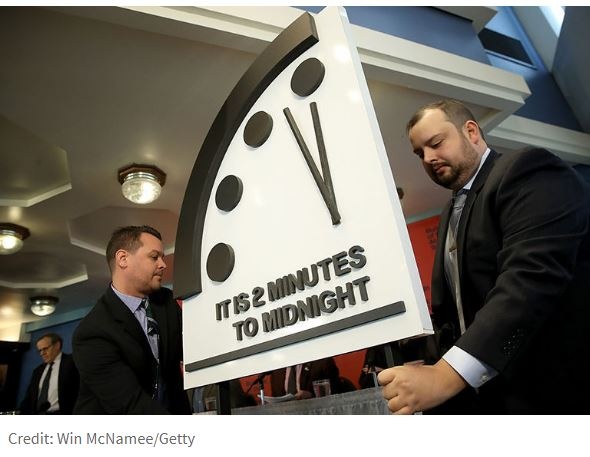"Doomsday clock' ticks closer to apocalyptic midnight"
See link for full story https://edition.cnn.com/2018/0...
The link above suggests the Doomsday Clock is nearer to the end of the world than ever before. Nothing so pessimistic as that in my mind, but a realisation that equity/risk is high. Some strategies to protect or improve portfolio's performance, other than being in cash would be worthwhile.
Market Corrections.
Some rambling thoughts this Sunday as the clocks went forward for Summertime.
Any stock market correction is now one hour earlier when the markets open on Monday. Does one single hour make a difference? Probably not, but it does marginally leave you with less free time to decide how to play a turbulent market next week.
I'm long the market. I have no shorts, but I would not be overly surprised to see the froth taken off the market with circa 25% market correction in the days and weeks ahead. Some of this overall market correction has already occurred with the market down several days in a row.
Some investors think that a market cannot correct substantially if the economy is growing. Of course it can, it just limits the downside somewhat, In another two or three years time, we could be facing a recession and then suffer another 25% market fall, making a total of 50% fall altogether.
In a 50% market correction, price-earnings ratios would be cut in half. Stocks will need to compound their earnings by 15% or more per annum over the next five years, just to allow their share prices simply to stand still in 5 years time.
A 15% compound earnings per year over 5 years will double earnings per share but not necessarily increase the share price over today's share price, given a halving of the p/e ratio.
Very few companies can achieve this actual rate of growth in a recessionary environment. Even those companies which can are often on huge multiples.
Many individual share prices for companies in the future may fall between 20% and 80%. The better quality shares by 20% because at least they have some growth in future earnings. The worse companies by 80% or more because of declining earnings.
Historically, the circa 50% drop across the market has happened twice before in last twenty years. Why…







